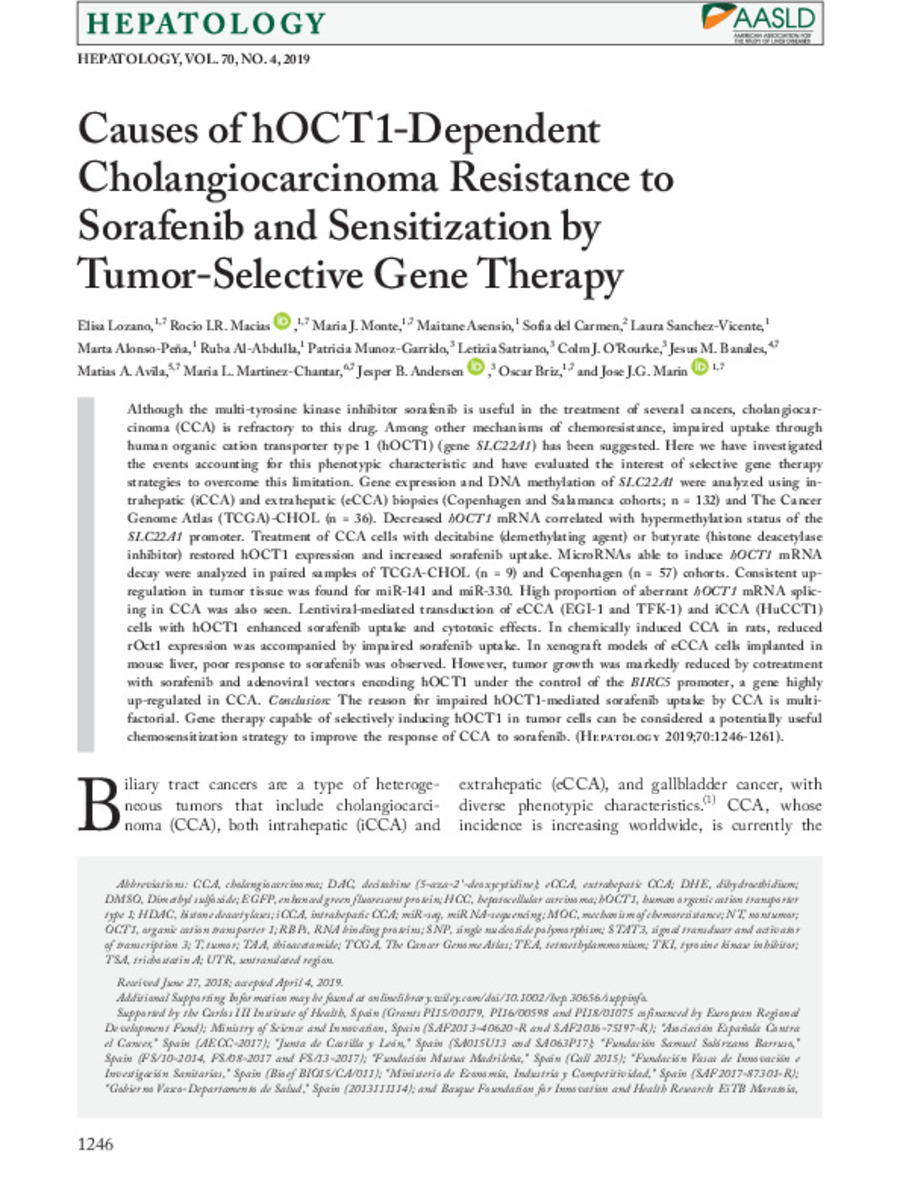Causes of hOCT1-dependent cholangiocarcinoma resistance to sorafenib and sensitization by tumor-selective gene therapy
Palabras clave :
Multi-tyrosine
Several cancers
Cholangiocarcinoma (CCA)
Mechanisms of chemoresistance
Fecha de publicación :
2019
Cita:
Lozano, E. (Elisa); Macias, R. (Rocío); Monte, M.J. (María J.); et al. "Causes of hOCT1-dependent cholangiocarcinoma resistance to sorafenib and sensitization by tumor-selective gene therapy". Hepatology. 70 (4), 2019, 1246 - 1261
Aparece en las colecciones:
Estadísticas e impacto
0 citas en

0 citas en

Los ítems de Dadun están protegidos por copyright, con todos los derechos reservados, a menos que se indique lo contrario.







